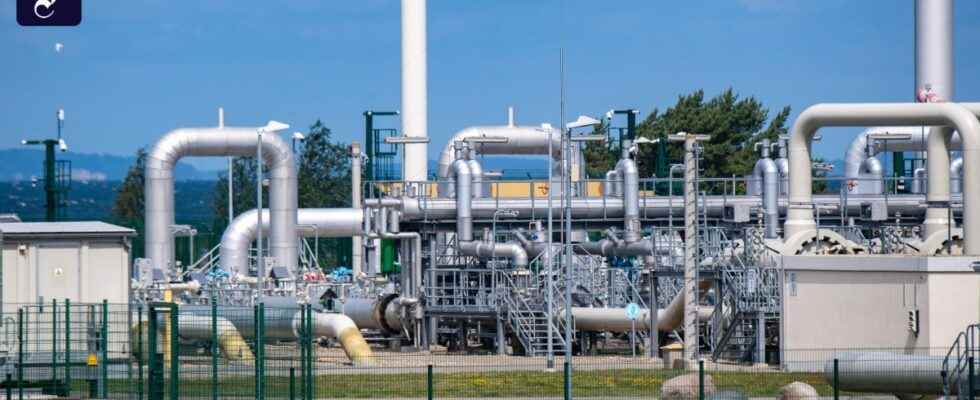SShould Russia stop sending gas to Germany with immediate effect, this would have painful economic consequences for Germany. However, the economic damage would be of a magnitude that would be no more dramatic than during the corona pandemic. This is the result of Rüdiger Bachmann (University of Notre Dame), Moritz Schularick (University of Bonn) and nine other macro and energy economists in a study published on Friday. The research team thus confirms the results of a calculation that it had presented in March shortly after the Russian attack on Ukraine. “There is no place for scaremongering. Nevertheless, it should be clear to everyone that the Russian invasion of Ukraine has made Germany poorer in the long term,” the economists summarize.
The publication in March made waves among researchers and politicians. Other economists such as Tom Krebs (University of Mannheim) and Sebastian Dullien from the trade union institute IMK had come to far greater damage in their own calculations. While Bachmann and Co. assumed a maximum of 3 percent less economic output in the event of a gas embargo against Russia, the more pessimistic researchers named figures at least twice as high. Chancellor Olaf Scholz (SPD) then dismissed Bachmann and his co-authors on the talk show “Anne Will” and called it “irresponsible” to make such calculations at all.
Scholz: Irresponsible
In the new edition of their March paper, the researchers now argue that the gas gap has narrowed compared to spring, but that the remaining adjustment time up to possible bottlenecks in winter has also become shorter. In this respect, the costs remained substantial, but “manageable” with appropriate economic policy measures. The researchers write: “If Russian gas imports are stopped, there is no threat of mass poverty or popular uprisings.”
In their new calculations, the economists come to the conclusion that industry, households, companies and the public sector would have to reduce their gas consumption by a fifth overall in the event of a delivery stop. Such a reduction can be implemented with a collective effort. The researchers see three central levers for this: firstly, to reduce the consumption of gas in power generation, secondly, to reduce the consumption of gas for heating buildings, and thirdly, to both reduce and substitute gas consumption in industry. The heating of buildings accounts for the majority of gas consumption in the winter months, so that savings efforts are particularly effective here.
“A realistically achievable savings by households and businesses is around 15 percent of their consumption. When heating, this corresponds to a reduction in room temperature of up to 2.5 degrees Celsius,” the researchers write. Economic output is declining, among other things, because gas savings in industry are “not possible without temporary production declines”.
